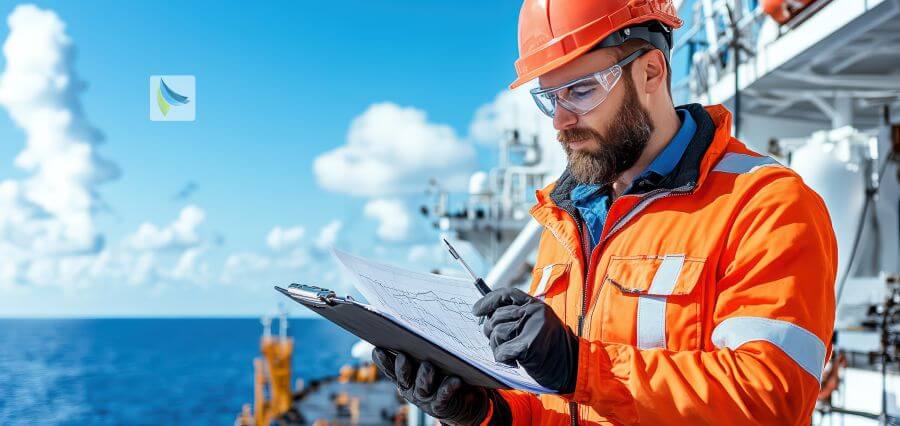Maritime innovations-the future map: the maritime industry is a field that is undergoing massive change brought about due to new changes in technology and environmental demands for efficiency in running operations. Since it is pivotal in feeding the world economies, putting it at the helm of global operations through their operations directed and aimed at transporting goods and resources around the whole world, this is the innovation that will speed the design, operations, and integration of ships in supply chains-that in turn will be the driving force for continued innovation in sustainability and efficiency.
Autonomous Shipping
There is no doubt at all that autonomous vessels are one of the most spoken innovations within the maritime industry. Artificial intelligence, machine learning, and advanced sensor systems enable these vessels to be at least partially or fully human on board. This will be blessed by providing much more safety and efficient navigation due to the opportunities that are greatly impaired much inside human errors: optimum usage of fuel by achieving proper navigation. Meanwhile, a variety of pilot projects will test the waters; commercial shipping will soon start.
Alternative Fuels and Green Propulsion
With increasing environmental regulations and the worldwide decarbonization call, alternative fuels and green propulsion are on a roll. Liquefied natural gas, ammonia, hydrogen, and biofuels are some emerging alternatives to cut greenhouse gases. Hybrid and fully electric propulsion systems with renewable sources for the production of energy, including wind and solar, are equally in vogue. These options make shipping lines almost pure followers of environmental norms. Such alternatives save enormous amounts for long-running businesses. Smart Ports and Digital Connectivity.
This does not just touch the ships but shifts the port by installing smart technology. Intelligent ports are today using devices of IoT, analytics of Big Data, and automation that alleviate the process of handling goods, reduces time-wasting queues, and adds layers to the security protocols. It watches vessels along with their content in real time; holds the capability of Predictive Maintenance, while the cranes that the ports handle are Efficient and Rugged. Changes also have enabled a good interface between the shipping line and logistic service providers.
Advancements in Ship Design and Materials
Modern shipbuilding involves new materials and new design concepts for efficient, safer, and more sustainable ships. Lightweight materials, advanced composites, and modular construction techniques reduce the weight of vessels while providing better fuel efficiency. Moreover, new innovative hull designs help to cut drag and thereby lead to energy savings. Other shipbuilders are working on research in 3D printing technology to produce customized parts for reduced time and cost of production.
Safety Enhancements
Indeed, safety at sea is highly important, and technology plays a central role in minimizing the risks to a great extent. Advanced radars, real-time weather forecasting, and collision-avoidance technologies help to enhance the crew’s situational awareness. Cyber security solutions that will protect ships and ports from the cyber threats of the digital age assure the protection of critical systems, sensitive data, and valuable information.
Blockchain in Maritime Supply Chains
Now, with blockchain technology, maritime logistics have changed. Information can now be written in such a manner that it becomes recorded as an immutable, tamper-proof record; hence it effectively leads to the tracing of shipments and verification of ownership towards completely eliminating paperwork. Achieving real-time visibility and accountability, blockchain technology does boost trust and cooperation among shippers, carriers, and end customers.
It is really important to get the workforce adequately trained, as technology is changing the face of maritime, and the crew needs to be able to operate and maintain the advanced systems. The applications of VR and AR are found in immersive training, which will allow mariners to experience real-world scenarios in simulated environments. These tools hone mariners’ skills in utilizing ever-complex systems with appropriate safety standards in their practices.
Ship Recycling Eco-Friendly
The industry further wants to minimize the adverse impacts that scrapping of vessels will have on the environment. The invention, therefore, is going to result in an eco-friendly dismantling of ships. In this respect, the more the waste produced the larger the value retrieved with maximum reuses of the material. This way, to the utmost degree as appropriate within the circular economy, what’s done is that there’s utilization in terms of reuse or repurposing of parts of the ship.
Future
The maritime industry will henceforth be defined by innovation in integration with the ability to prioritize the three aspects of economics, socialization, and environment. Moving ever forward into the future, this sector awaits key input in the facilitation of trade through objectives that may ensure sustainability. From self-driven ships to blockchain-supplied chains, shipping industries are charting courses toward a better environment in times to come.

